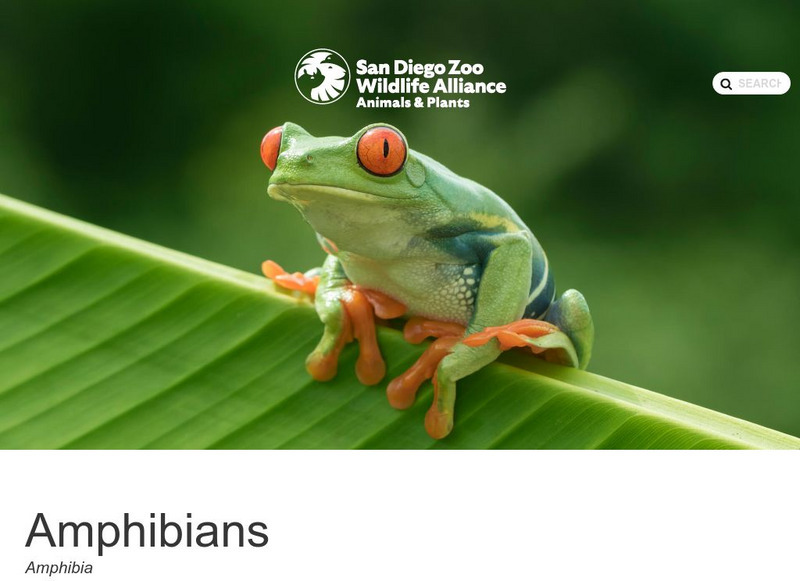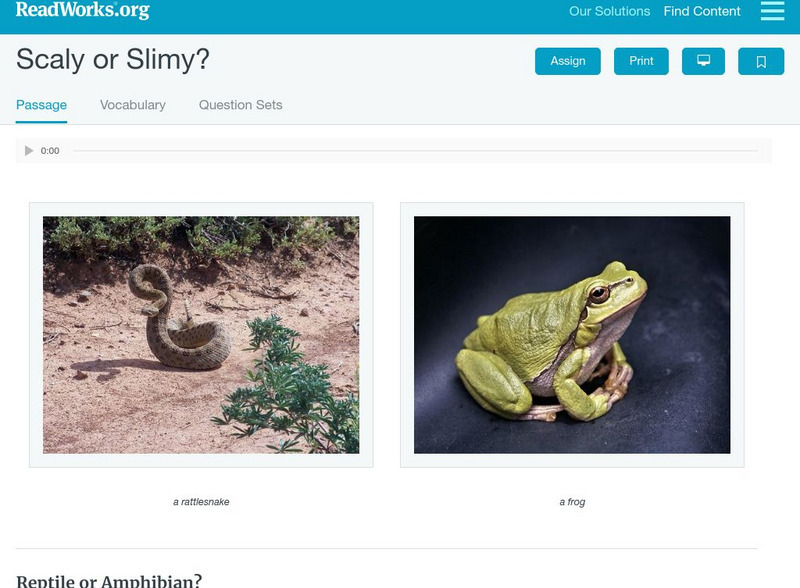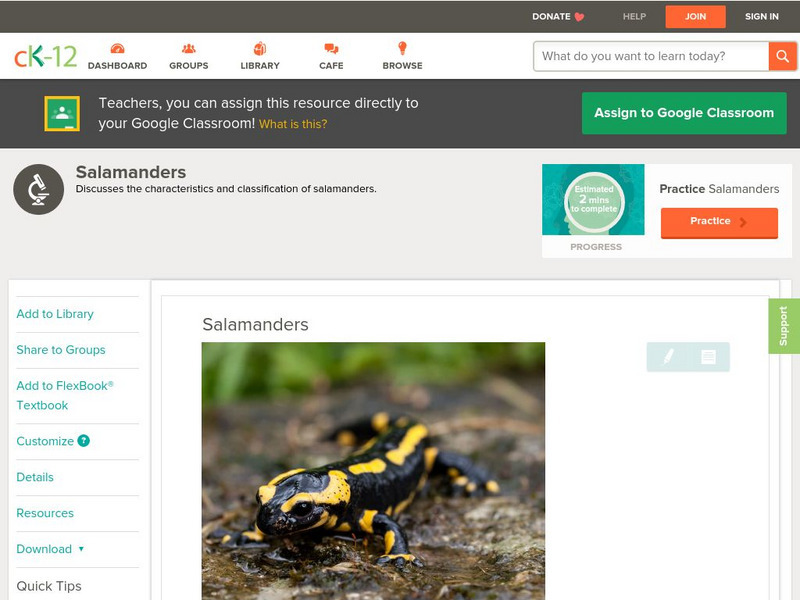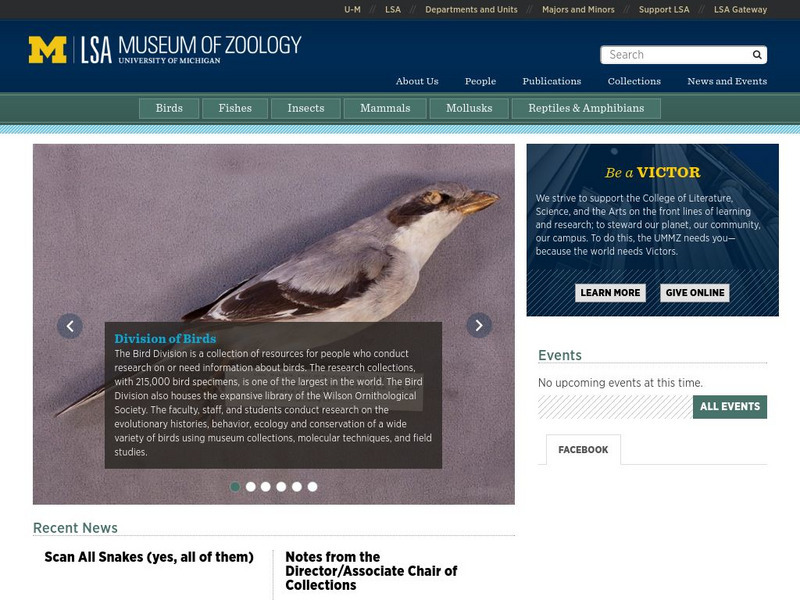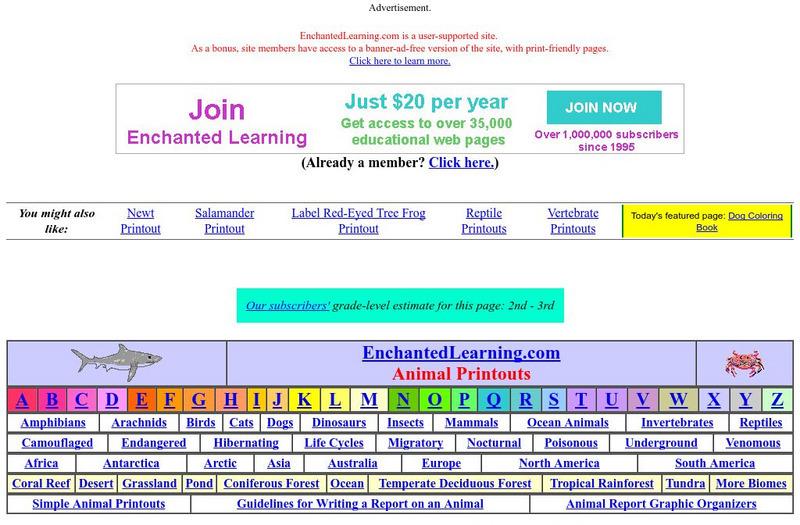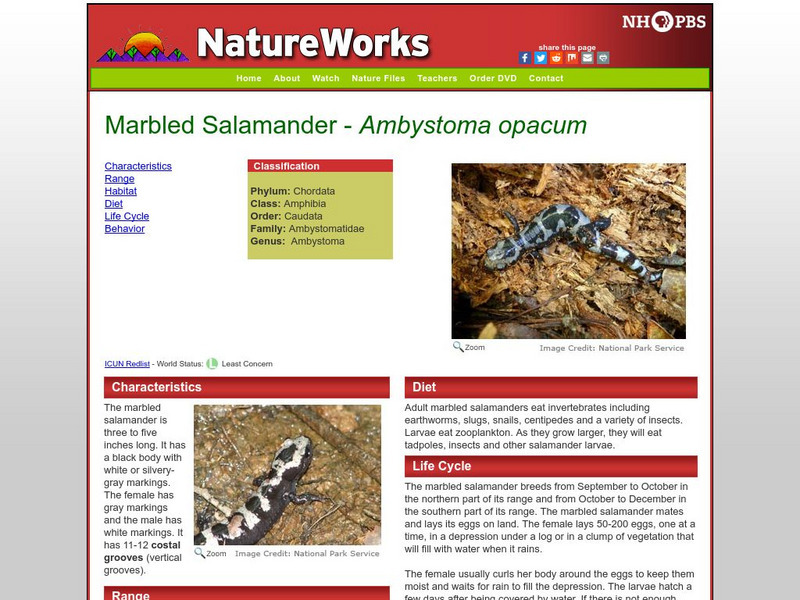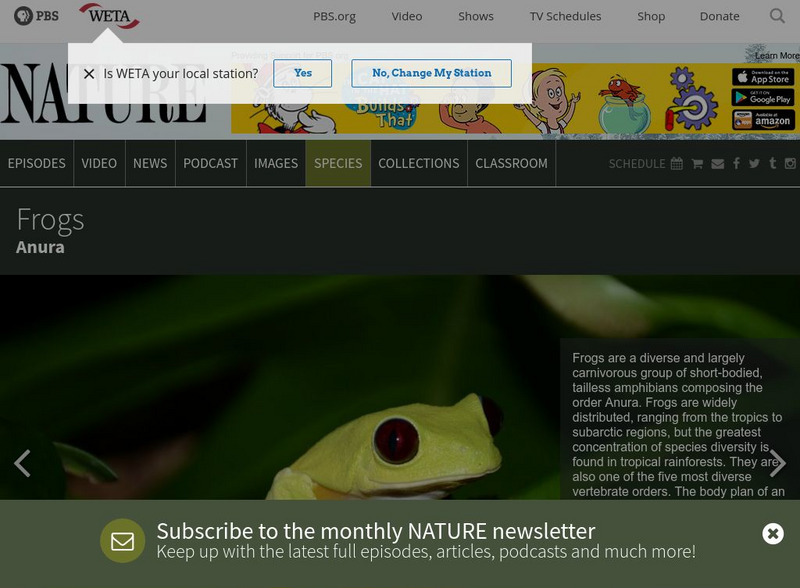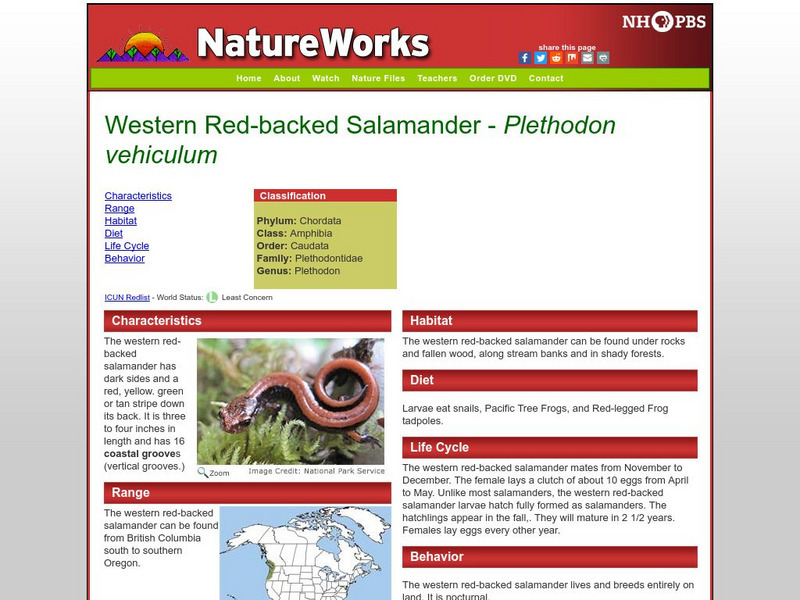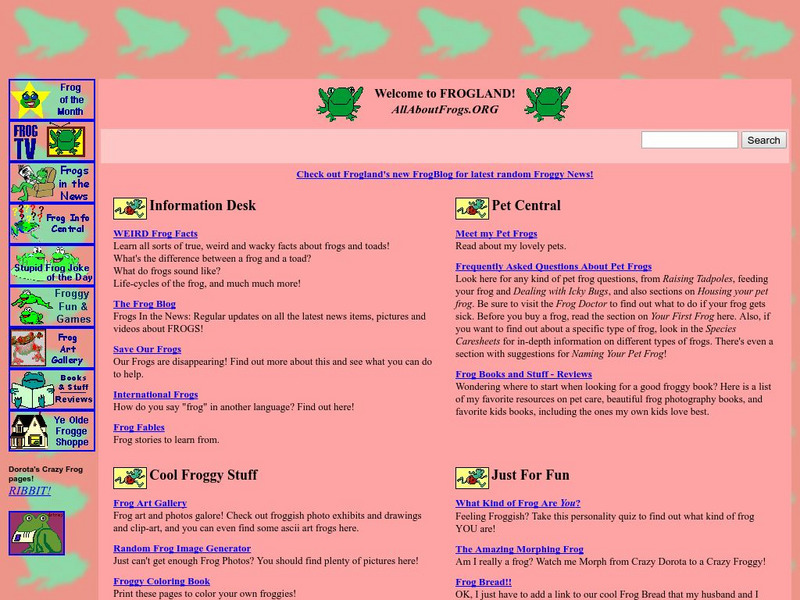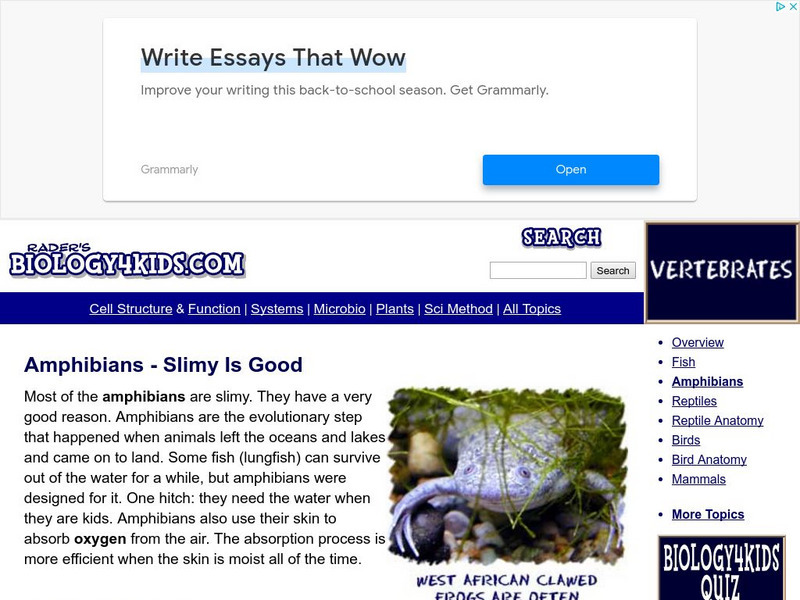A-Z Animals
A Z Animals: Animal Facts: Pool Frog (Pelophylax Lessonae)
Provides photographs and a fact card about the pool frog. Discusses where they are found, habitat, physical characteristics, diet, predators, reproduction, and population status.
A-Z Animals
A Z Animals: Animal Facts: Salamander (Caudata)
Provides photographs and a fact card about the salamander, an amphibian. Discusses where they are found, physical characteristics, the diversity of species, their unique skin and gland secretions, and population decline from threats to...
San Diego Zoo Global
San Diego Zoo: Amphibians
This resource offers extensive information about amphibians. Visitors can click on the listed amphibians for further information.
Read Works
Read Works: Scaly or Slimy?
[Free Registration/Login Required] An informational text about the difference between a reptile and an amphibian. A question sheet is available to help students build skills in reading comprehension.
University of Florida
Florida Museum of Natural History: Homepage
This site from the Florida Museum of Natural History gives the current events, information about the museum, exhibits and public programs, research and collections, links, etc. to the Florida Museum of Natural History.
CK-12 Foundation
Ck 12: Life Science: Salamanders
[Free Registration/Login may be required to access all resource tools.] Salamanders are characterized by slender bodies, short legs, and long tails. They are most closely related to the caecilians, little-known legless amphibians. Learn...
University of Michigan
University of Michigan: Museum of Zoology
See the Museum of Zoology where visitors can explore the museum's resources.
Other
Voronezh Zoological Gardens
This is a very informative site about this Russian zoo. It offers history and background, pictures, and an English version.
Enchanted Learning
Enchanted Learning: Amphibians
Come and check out this awesome amphibian resource from EnchantedLearning.com. Students and teachers will benefit from the printouts found within this site. Some printouts are in different languages.
PBS
Nh Pbs: Nature Works: Blue Spotted Salamander
This site created by NatureWorks focuses on the Blue-Spotted Salamander. The content of this resource includes a look at this species' characteristics, range, habitat, food, and more.
PBS
Nh Pbs: Nature Works: Marbled Salamander
The marbled salamander lives in forests and woodlands in the eastern part of the United States, where it is an endangered species in certain states. Students and teachers will find the content to include a look at the species' life...
PBS
Pbs Nature: Frogs and Toads
Do you know how to tell the difference between a frog and a toad? This site provides interesting facts and information about this type of amphibian from where they live to what they eat and more.
PBS
Nh Pbs: Nature Works: Western Red Backed Salamander
Learn more about the Western Red-Backed Salamander through the exploration of this resource. This site features information ranging from characteristics and range to life cycle and diet.
Other
Welcome to Frogland!
Frogland has fun and important information about frogs in the news, pet frogs, frogs in the wild, frog jokes, and more. Features include a section for teachers and parents.
Biology 4 kids
Biology4 Kids: Amphibians Slimy Is Good
An overview of amphibians. Find out why their skin is slimy when they're on dry land.
ClassFlow
Class Flow: Animals Grow and Change
[Free Registration/Login Required] This is a 2nd Grade unit on how animals grow and change. It includes information on life cycles of animals and how to classify animals into groups (i.e. mammal, reptile, amphibian, etc.) There is an...
ClassFlow
Class Flow: Frogs
[Free Registration/Login Required] This flipchart is a brief introduction to frogs, their habitats, life cycle, and some fun facts!
Ducksters
Ducksters: American Bullfrog
Kids learn about the American Bullfrog, large amphibians and frogs that can jump high.
Quia
Quia: Animal Classifications
An interactive matching game from Quia dealing with animal classifications.
Curated OER
Green Eye Frog
Here you can find information on the frogs found in the Australian rainforest. Select a species for a photo and more detail.
Curated OER
[Toads Mating]
Understand the reproduction and life cycle of a frog from mating through spawn, eggs, tadpoles, and growing legs to the final frog. Nice details.
Curated OER
University of Wisconsin: Amphibian Embryology Tutorial
This amphibian embryology tutorial takes an in depth look at the question "Why study amphibians?". Through this tutorial students will develop a better understanding of vertebrate development.
Curated OER
Emperor Newt
This informative site explores both reptiles and amphibians. Content includes a reptile and amphibian index, fact sheets, conservation information, a photo gallery, live web cams, and more.




